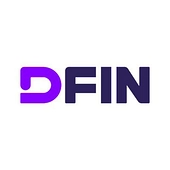Senior Software Engineer (C/C++ & Python, Networking Domain)
Miramar, FL
About Quvia
Quvia is the AI-powered quality of experience (QoE) management platform for things that move like ships and planes, transforming connectivity and digital experiences even in the most remote and hard-to-reach places. Our platform uses AI and machine learning to seamlessly blend any combination of connectivity, regardless of provider, orbit, or network, into one vendor-neutral environment. Quvia delivers comprehensive, end-to-end analytics and dynamic network orchestration that optimizes for the best possible QoE for applications and end-users.
Today, Quvia partners with world-leading Fortune 500 companies in aviation, cruise, shipping, and beyond.
Why Quvia?
Founded in 2019, Quvia is a fast-growing, Series A tech startup passionate about redefining global connectivity. Our solutions are already addressing significant challenges in the aviation and cruise industries and we’re just getting started. With headquarters in the greater Miami region and offices in the UK and India, our remote-first culture empowers talented individuals around the world to make a lasting impact. Quvia is backed by Columbia Capital, a respected venture capital firm with over $5 billion in fund commitments.
Position Overview
We are seeking a Grid Data Path Engineer with strong proficiency in C/C++ and Python, and solid experience in the networking domain. The ideal candidate will be responsible for designing, developing, and maintaining software systems that power next-generation networking solutions, with a focus on performance, scalability, and reliability. Having hands-on experience in virtualized environments (VMs) — including setup, configuration, and network integration — along with the ability to design and develop robust, scalable networking software is also an essential requirement.
In order to be considered, candidates must be based in South Florida, and live within a commutable distance to our headquarters in Miramar.
Key Duties and Responsibilities:
- Design and develop software modules using C/C++ for high-performance network applications.
- Part of the software also involves integrating with Python based modules.
- Work on L2–L7 networking protocols such as Ethernet, IP, TCP/UDP, BGP, OSPF, MPLS, and others.
- Collaborate closely with architecture and QA teams to define and deliver robust software components.
- Debug and resolve complex issues across multiple layers (application, transport, and network).
- Analyze crash files and debug with the team to resolve them
- Configure and troubleshoot virtual networking in virtual machine (VM) environments — bridges, TAP/TUN interfaces, VLANs, and virtual switches (like OVS).
- Deploy and test networking software inside VMs or virtualized test environments (e.g., KVM, VMware, VirtualBox, or cloud VMs).
- Collaborate with DevOps and QA teams to ensure seamless deployment, configuration, and testing workflows.
- Participate in design and code reviews, enforcing best practices for maintainable, high-quality code.
- Mentor junior engineers and contribute to technical design discussions and documentation.
Requirements:
- Bachelor’s or Master’s degree in Computer Science, Electronics, or related discipline.
- 7–10 years of hands-on software development experience in C/C++ and Python.
- Strong understanding of networking concepts and protocols — IPv4/IPv6, ARP, VLAN, TCP/IP stack, routing, switching, or network virtualization.
- Experience with Linux based systems — system programming, socket programming, and multithreading.
- Hands-on experience with packet capture/analysis tools (Wireshark, tcpdump, etc.).
- Exposure to DPDK/VPP, SDN/NFV, or network appliances is a strong plus.
- Experience integrating software with network management systems (NMS), SNMP, or REST APIs.
- Familiarity with CI/CD pipelines, Git, Jenkins, Docker, Kubernetes preferred.
- Excellent problem-solving and debugging skills in distributed systems.
- Good understanding of software design patterns and performance optimization techniques.
- Strong analytical thinking and attention to detail.
- Good communication skills and ability to work in a collaborative environment.
- Proven track record of delivering production-quality software in fast-paced teams.
Preferred / Good to Have:
- Experience with VPP (Vector Packet Processing) or DPDK-based applications.
- Strong understanding of networking concepts — TCP/IP stack, routing, switching, VLANs, ARP, IPv4/IPv6.
- Proven experience with Linux/Unix systems, socket programming, and multithreaded applications.
- Hands-on experience in setting up and managing virtual machines and virtual networks —
- including KVM, libvirt, VMware, or VirtualBox.
- Familiarity with configuring bridges, vSwitches, TAP/TUN interfaces, and NAT or host-only networking.
- Exposure to OpenConfig, NETCONF/YANG, gRPC, or telemetry systems.
What We Offer:
- Competitive salary
- Equity options
- Performance-based bonus opportunities
- Medical, Dental and Vision benefits
- Life Insurance
- Flexible PTO policy
- 401(k) plan
Top Skills

What We Do
Quvia is the first AI-powered QoE platform for ships, planes and remote sites. The platform seamlessly blends any combination of connectivity, including multiple service providers, satellite orbits and terrestrial networks, into one, vendor-neutral environment; continuously measures and analyzes real-time connectivity performance and its impact on quality of experience (QoE); and intelligently orchestrates the network to deliver the best possible QoE—even in the most remote places.
Today, Quvia works with industry-leading companies in aviation, cruise, energy, shipping and more. To learn more, visit: www.quvia.ai.
Not sure how to pronounce Quvia? Think cue-vee-uh. 👌
Recruiting Disclaimer: Quvia will never ask to interview job applicants via text message or ask for personal banking information as part of the interview process. Quvia will never ask job applicants or new hires to send money or deposit checks for the company. In case of doubt, please contact us directly at [email protected].









